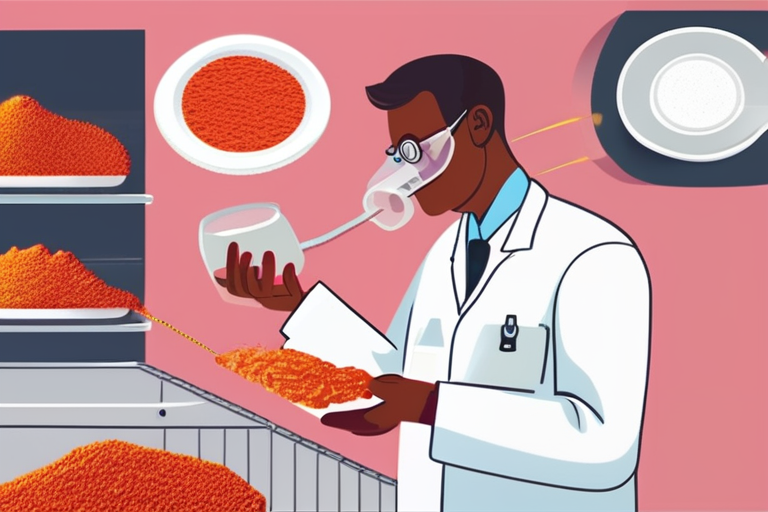Researchers at the East China University of Science and Technology in Shanghai have developed a gel-based synthetic tongue that can accurately determine the spiciness of various foods without putting human taste buds at risk. The device, as reported in ACS Sensors, uses electronic sensors to detect the heat levels of spicy foods, a crucial aspect for quality control in the food industry. According to co-author Jing Hu, a chemical engineer at the university, the team's solution was inspired by the spicy-neutralizing effect of milk, which relieves the burn of a spicy dish.
The artificial tongue can measure the spiciness of a wide range of foods, from the relatively mild bell pepper to the more formidable facing heaven chili of Sichuan cuisine. This device is not a new concept, as scientists have created similar devices that can detect various tastes, including sweet, sour, spicy, and umami. However, the authors of the new paper focused specifically on spiciness and aimed to measure spice levels as precisely as possible.
According to Jing Hu, the team's solution was inspired by the way milk proteins affect our perception of spiciness. "Milk proteins that affect our perception of spiciness relieve the burn of a spicy dish," Hu explained. "We used this concept to develop a device that can accurately measure the spiciness of various foods without putting human taste buds at risk."
The development of this synthetic tongue has significant implications for the food industry, particularly in the production and quality control of spicy foods. "This device can be used to measure the spiciness of various foods, which is especially important for quality control in food," Hu said. "It can also be used to develop new spicy foods with precise levels of heat."
The use of a synthetic tongue to measure spiciness also raises questions about the role of human taste buds in the culinary experience. While the device can accurately detect the heat levels of spicy foods, it lacks the nuance and complexity of human taste. "The synthetic tongue can detect the spiciness of a dish, but it cannot replicate the complexity of human taste," said Dr. Maria Rodriguez, a food scientist at a leading research institution. "However, the device can be a valuable tool for food manufacturers and chefs who want to create spicy dishes with precise levels of heat."
The researchers are currently refining the device and exploring its potential applications in the food industry. According to Jing Hu, the team is working on improving the device's sensitivity and accuracy, as well as expanding its capabilities to detect other tastes. "We are also exploring the potential applications of the device in the food industry, such as in the production of spicy foods and the development of new flavor profiles," Hu said.
As the synthetic tongue continues to evolve, it is likely to have a significant impact on the food industry and the way we experience spicy foods. While it may never replace the complexity and nuance of human taste, the device has the potential to revolutionize the way we produce and consume spicy foods.



























Share & Engage Share
Share this article